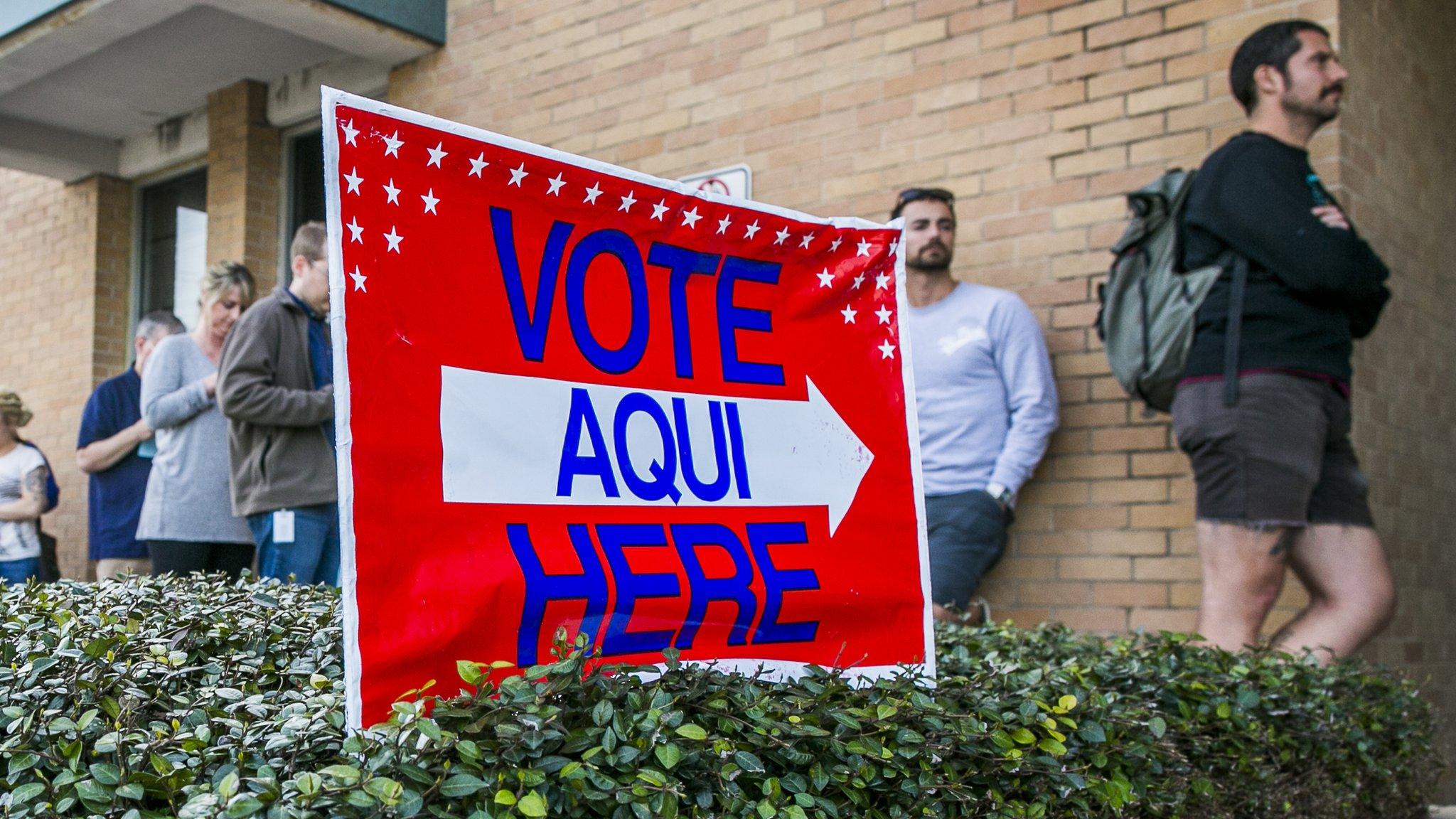Mid-terms 2018: How these elections broke records
- Published
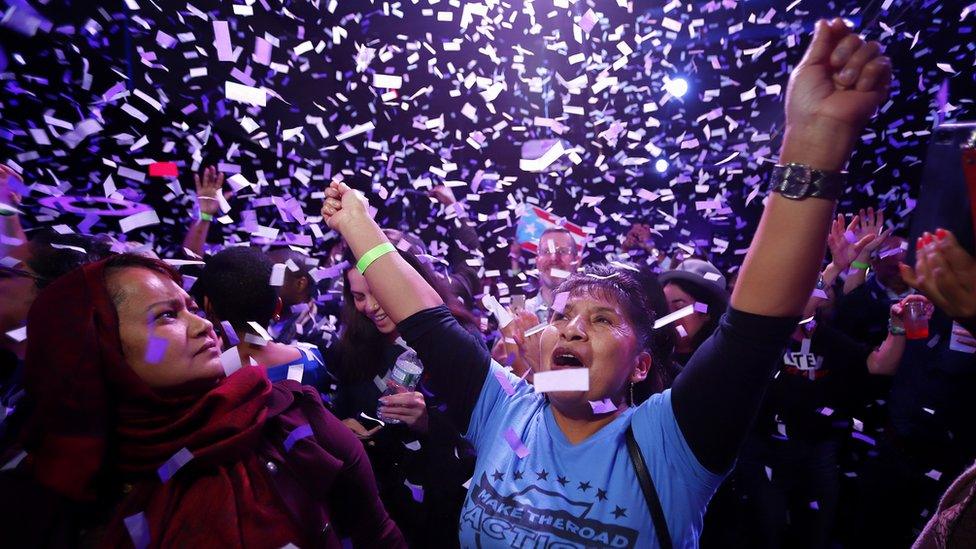
Supporters of Alexandria Ocasio-Cortez, who became the youngest woman ever elected to Congress, celebrate her victory
This year's crucial mid-term elections were always likely to make history.
More women and LGBT people ran than ever before and, with a polarising president in the White House, many predicted voters would head to the polls in their droves.
While the headline remains that the Democrats won the House and the Republicans held the Senate, these elections will be remembered for a host of different reasons.
So here are just some of the records that were broken and some of the winners who sealed their place in history...
Year of the woman
This was how the mid-terms were being billed by some, a reference to the 1992 elections in which the number of women in Congress doubled.
And that has proven true. The number of women in both chambers will be at a record high come January, beating the current tally of 107.
It's worth noting that there are still some districts still to be counted, so yet more women could serve in the 116th Congress.
The story of election night in two minutes
Hillary Clinton's surprise defeat to President Donald Trump two years ago, a man who has a history of making sexist remarks, appears to have been a galvanising moment for American women.
The new intake heading to Washington includes a number of historic firsts. Such as...
The youngest congresswoman
Last year, Alexandria Ocasio-Cortez was mixing cocktails at a restaurant in New York City.
Now, the 29-year-old will swap the tequila and taco bar for the grandeur of the Capitol building after becoming the youngest woman ever elected to Congress.
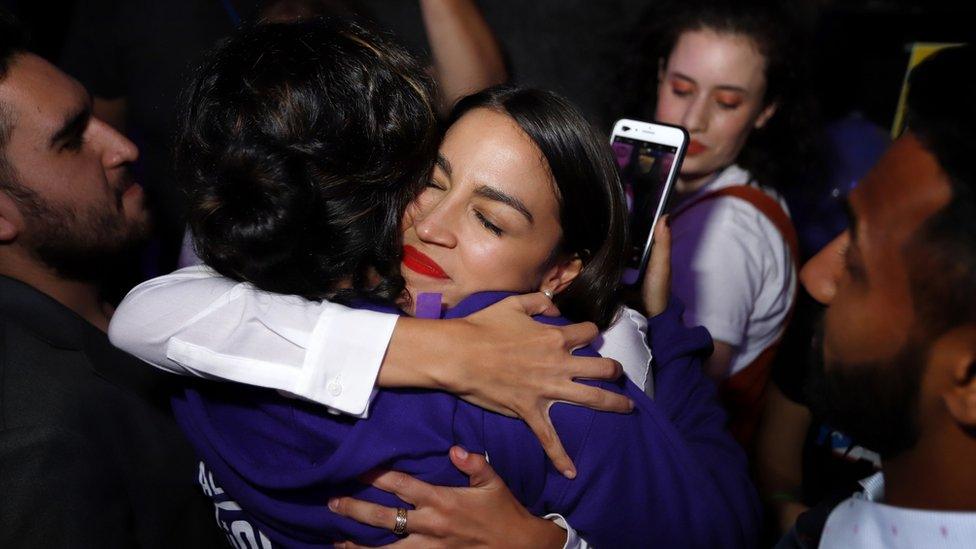
Ms Ocasio-Cortez supports universal healthcare, tuition-free college and criminal justice reform
Ms Ocasio-Cortez, a former Bernie Sanders volunteer who led a progressive campaign, stormed to victory with more than 78% of the vote in New York's 13th district.
"We have made history tonight," she told cheering supporters after the result was confirmed.
Meanwhile, more than 1,000 miles (1600km) away in the state of Iowa, Abby Finkenauer also joined the ranks of the nation's youngest representatives.
Ms Finkenauer, 29, won a close race in Iowa's first district and will unseat Republican Rod Blum.

More on the mid-terms:
Historic wins for minorities
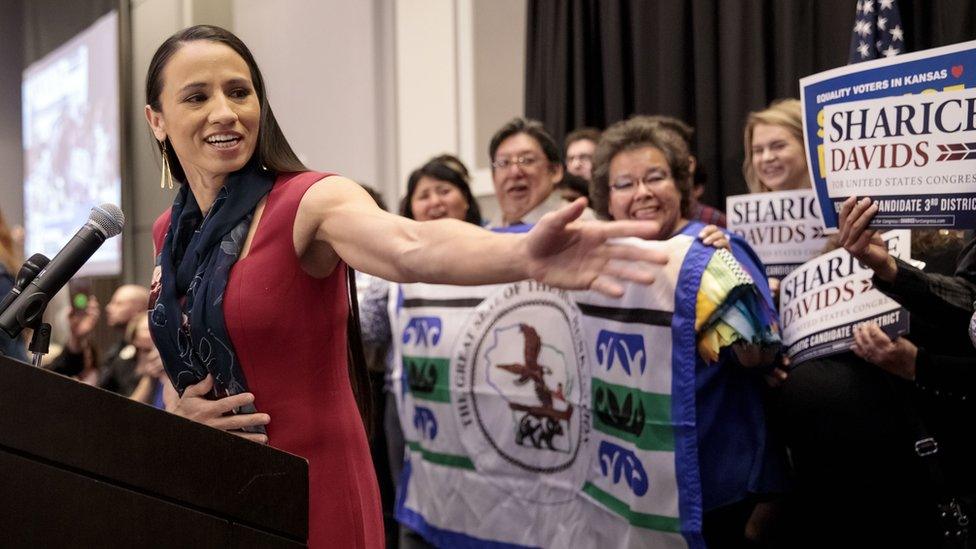
Democrat Sharice Davids won in Kansas's third congressional district
In Kansas, Sharice Davids won her race while, in New Mexico, Debra Haaland cruised to a landslide victory in the state's first district.
It means the two Democrats are the first Native American women to be elected to Congress.
Ms Davids is a member of the Ho-Chunk Nation and a former mixed martial arts fighter who was raised by a single mother.
Democrats Rashida Tlaib in Michigan and Ilhan Omar in Minnesota became the first female Muslim representatives.
Ilhan Omar spoke to the BBC last year about becoming the first Somali-American lawmaker in the US
Ms Omar fled Somalia's civil war with her parents at the age of eight and spent four years at a refugee camp in Kenya before coming to the US.
"It is up to us to fulfil the promise of America," she told supporters after her win.
"Let's get to the business of dancing and celebrating," she added. "We're going to Washington!"
History was also made in Colorado, where Democrat Jared Polis became the first openly gay man to be elected a state governor.
An energised electorate
These elections broke records for early voting, leading experts to predict that turnout could be exceptionally high.
We won't know the official numbers for several days, but some exit polls showed that it had soared when compared to 2014.
The New York Times estimates that 114 million votes were cast, compared to 83 million four years ago.
Our reporters witnessed long queues at polling stations across the country and also say turnout appeared to be high.
Allow X content?
This article contains content provided by X. We ask for your permission before anything is loaded, as they may be using cookies and other technologies. You may want to read X’s cookie policy, external and privacy policy, external before accepting. To view this content choose ‘accept and continue’.

Money, money, money

The amount spent on campaigns during this election cycle broke all previous records, experts say.
The total spend reached more than $5.2 billion (£3.9bn), external, according to analysis by the Center for Responsive Politics (CRP).
This is a 35% increase on four years ago and the largest increase in at least two decades, the non-profit research group says.
"It's safe to say that this is a new mid-term record," a CRP researcher told news website Axios.
This spending covers things like TV and radio broadcasts and digital advertising.
But is this money well spent? Perhaps not.
The BBC's Georgina Rannard spoke to a number of voters ahead of the elections who agreed on one thing: they were sick and tired of political attack ads.
- Published7 November 2018
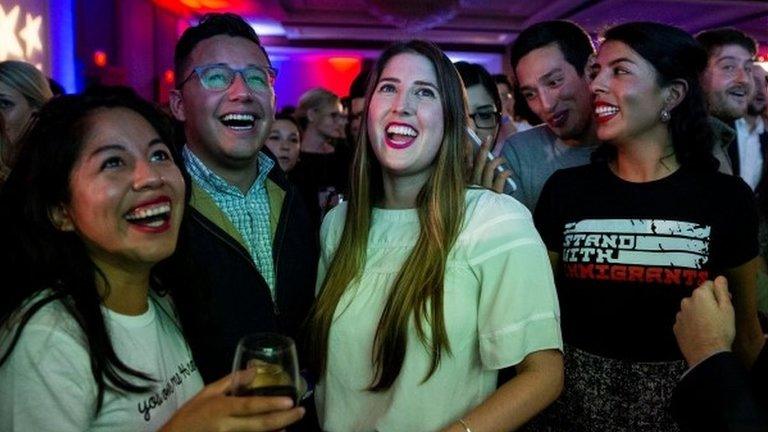
- Published28 November 2018
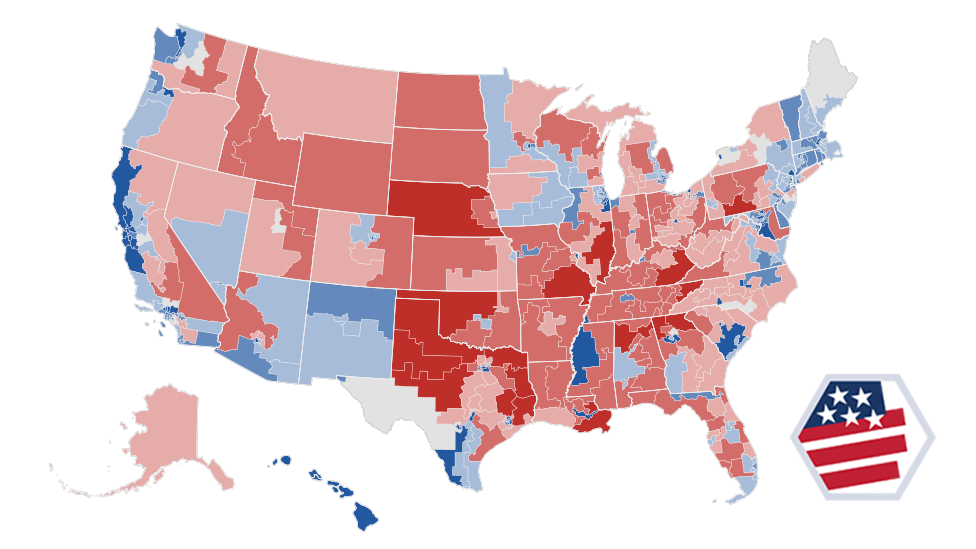
- Published7 November 2018
- Published8 November 2018
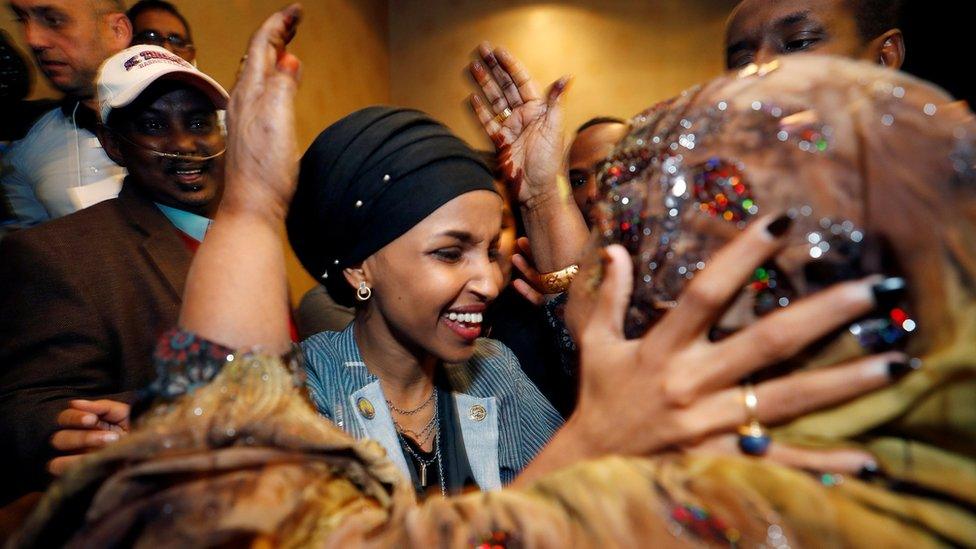
- Published6 November 2018
